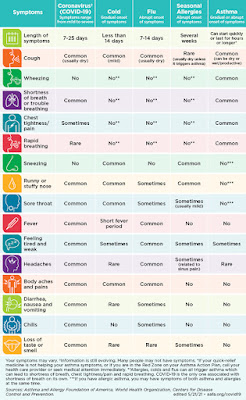Allergies and asthma are both the most frequent chronic respiratory diseases in the nation. Asthma is an allergic respiratory condition that makes breathing very difficult and causes the airways to narrow. It afflicts 1 in every thirteen individuals. It is also known as allergic rhinitis or dust asthma. Studies show that up to seventy percent of all asthmatics have allergies.
There is more than one million American children suffering from allergies and asthma. Most allergy sufferers are kids between the ages of two and nineteen. One allergy is responsible for nearly twenty percent of hospital admissions for children in America. This means that an allergy that affects one in thirteen American children, can result in lost time at school and daycare because of the need for special care. Approximately one in seven school-age children in America suffer from an allergy. Approximately one in seven children in America also suffer from an asthmatic attack.
An allergic reaction may occur after exposure to a specific allergen or after repeated exposure to particular allergens over a period of time. The most common allergies are dust, animal dander, mold, pollen, and dust mites. In most cases, an individual can control his or her own reactions by controlling exposure to these specific allergens. A specialized allergy test is recommended for those who do have sensitivities to environmental allergens and are unable to control their exposure. For others, a specialized allergy treatment plan is recommended.
A variety of things can cause allergies and asthma. Seasonal hay fever symptoms can be controlled by staying indoors when pollen counts are high, especially in the spring and fall. Using pollen avoidance products such as vacuum cleaners with HEPA filters will help reduce exposure. These products will capture the pollen that may be floating in the air and pass it through a filter before it reaches your lungs.
Asthma can also be caused by allergies and inflammation of the respiratory system. Some people suffer from allergic reactions to airborne bacteria or molds like house dust mites and pet dander. Some people are highly sensitive to seasonal changes. They may experience sneezing or sinusitis at any time of the year. A doctor can recommend medicines that will reduce the frequency of asthma attacks or the severity of them.
Allergies and asthma often occur together in certain people who are susceptible to both diseases. People who suffer from hay fever or other types of allergies may also have an asthmatic reaction to airborne allergens. If you share a room with a person who has allergies, you should take care to avoid him or her if possible. Even if you cannot avoid the person, the allergies and the asthma may be mutually controlled.
Allergens that cause the allergic reaction may not be visible to the naked eye. The body's defense system may send antibodies to battle the allergens. However, there are also substances that are not visible to the human eye such as pollen and spores that can cause serious problems. Inhaling these substances can worsen the condition of allergy-prone individuals.
If you suffer from allergies and asthma, you can find medications at the local pharmacy that will relieve your symptoms. It is important that you follow your doctor's orders to prevent further damage to your body. The medications that are used to treat allergies and asthma may differ depending on the ailment. For more information, please consult your pharmacist or physician.
Allergies and asthma are closely related, especially since they are triggered by allergens. You have to identify what these allergens are in order for you to control your reactions. You may not be able to keep yourself away from the things that you love while suffering from allergies and asthma. In addition, you will need to stay away from the triggers if you want to avoid getting an attack. As a matter of fact, allergies and asthma commonly occur together because the two conditions often manifest themselves through the same allergic reaction.
If you suffer from allergies and asthma, you have to use specific medications that will help in managing the symptoms and reducing your likelihood of getting an attack. These medications are usually inhaled medicines. There are three types: corticosteroids, bronchodilators, and interferon beta. Long-term use of these medications can lead to serious side effects. Aside from that, long-term use of these medications can also bring harmful effects to other parts of your body, such as your eyes, liver, and kidneys. Inhaled medications should only be used as a complement to other medications that are prescribed by your doctor.
Histamine is another factor that leads to allergies and asthma. Histamine blockers are the medications that you should be using if you want to reduce the production of histamine in your body. Histamine blockers inhibit the release of histamine in the airways thereby preventing the inflammation caused by allergies and asthma from spreading in your body. Histamine blockers have no significant side effects when taken as prescribed and are therefore very popular among patients with allergies and asthma.
